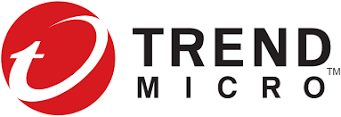Need to fortify email defense mechanisms and delete VB / JavaScripts not used in machines
Bangalore, Sept 04, 2017 – In the wake of Locky Ransomware attack and the Government of India issuing alert across the country, Trend Micro Incorporated (TYO: 4704; TSE: 4704), a global leader in cyber security solutions, has stated that there are no incidence reported by Trend Micro’s customers in India at present. As per Trend Micro, the ransomware is not likely to be on the scale of Wannacry and Petya ransomware, which relies on Microsoft vulnerability in Windows XP. Trend Micro has also provided precautionary measures on how to stop the Lukitus variant of Locky ransomware from spreading.

Ms. Sharda Tickoo, Technical Head, Trend Micro India said, “there haven’t been any cases of Locky ransomware reported by our customers in India or across geographies, but we are getting enquiries from customers and Trend Micro’s support team is helping out in resolving them. For addressing this malware, Trend Micro has its protection in place with suspicious and bad URLs being blocked. There are technologies wherein such embedded macros and file scripts can be detected and deleted.”
Pointing out the differences between other ransomware, she added, “Wannacry and Petya ransomware looks for Microsoft vulnerability to exploit and spread. There were only few machines with Microsoft vulnerability in Windows XP and hence the damage was huge. In this case, it is not exploiting any vulnerability, but what it uses is a Visual Basic (VB) / JavaScript encrypts in a document and the chances of this malware getting evaded are high.”
On the dos and don’ts, she further added, “Since this particular malware arrives through email compressed attachment and through hidden Visual Basic (VB) / JavaScript, we have to ensure that email as a channel is widely protected. We are trying to build a ransomware strategy with two best practices – first is to start with fortifying email defense mechanisms and second is to delete the VB or Java Script if it is not used in machines. There are certain secure configurations which are unnecessary and not running, should be blocked. This particular malware has a tendency of self deletion. It deletes itself with no traces left, once the payload is executed. It encrypts local drives and network shares. The basic hygiene is to try and avoid open network share and to make sure it is password protected.”
About Trend Micro
Trend Micro Incorporated, a global leader in cybersecurity solutions, helps to make the world safe for exchanging digital information. Our innovative solutions for consumers, businesses, and governments provide layered security for data centers, cloud environments, networks and endpoints. All our products work together to seamlessly share threat intelligence and provide a connected threat defense with centralized visibility and control, enabling better, faster protection. With more than 5,000 employees in over 50 countries and the world’s most advanced global threat intelligence, Trend Micro enables organizations to secure their journey to the cloud. For more information, visit www.trendmicro.com.
